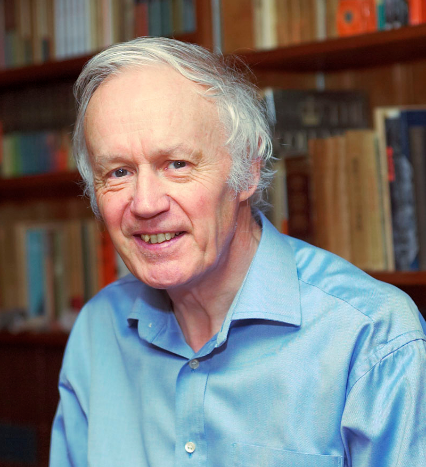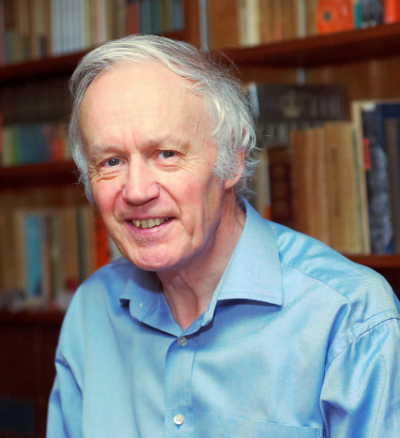Tokyo College Event “Why can’t time run backwards?” by Sir Anthony J. Leggett

Sir Anthony J. Leggett gave a lecture on “Why Can’t Time Run Backwards?”
On June 17, 2019, Sir Anthony J. Leggett (Professor at the University of Illinois Urbana-Champaign, Honorary Director of Tokyo College) gave a lecture on “Why Can’t Time Run Backwards?” Sir Leggett is known as a pioneer in low-temperature physics, and won the Nobel Prize in Physics in 2003 for his groundbreaking research on superfluids and superconductivity. In this lecture, Sir Leggett discussed why time does not flow from the future to the past, with reference to the laws of physics, and held a question and answer session in the latter half of the session.
After some remarks from moderator Professor Masaki Sano (Deputy College Director), Sir Leggett first considered the orientation of time on the basis of Newton’s laws of motion, electromagnetism, and quantum mechanics. Then, giving the example of it being more difficult to get a car into than out of a parking space, he explained the theory of a physicist who concluded that, “You can define a concept of ‘disorder’ which has to do with the available space or with the number of available states.” Sir Leggett pointed out that with the above argument, “You are always assuming that it’s the initial states and not the final states which have low disorder” and stated that the problem of order cannot be explained only by the general principle of thermodynamics that “left to themselves, things tend to a state of maximum disorder.” At this point he also referred to the anthropic principle in cosmology, and stated that there are unsolved problems going back to the Big Bang.
Is it possible to predict the future of the universe?
Thinking about the past leads to thinking about the future. Sir Leggett introduced thought on the mass density of the universe. If the universe continues to expand indefinitely, it will eventually flatten. However, if the universe is “closed,” then it is thought that the universe will expand to a maximum size and then contract, ultimately into a mass called the Hot Big Crunch. In other words, Sir Leggett said that there is still no answer to the question of whether chaos and disorder will increase or decrease in such a future of the universe, and which way humans, if they were living at such a time, would see the future.
Going beyond “common sense” in physics
If we go back at the history of physics over the last 500 years, revolutions in physics have occurred with the abandonment of what had previously been believed, and thought of as the most obvious common sense. For example, the views of Copernicus, Heisenberg, and Hubble overturned common sense. Bearing this in mind, Sir Leggett stated that, “…the idea that the past causes the present, and the present causes the future, and not vice versa. I’m personally convinced that if at some time in the next 10, 100, 500 years there comes about one more major revolution in physics, it will involve a challenge to this idea in some form or other.”
Q&Asession
In a question and answer session with the floor, young students actively spoke up and raised many questions relating to our lives and how we live, including issues such as how we should think about life in general from the viewpoints of philosophy and religion, entropy and human happiness, and the direction of time and communication. There were also technical questions on matters such as the theoretical possibility of creating a time machine, whether there are methods for measuring the irreversibility of time, and what kind of experimental equipment would be required for that. Sir Leggett stated that in the fields of science, deriving answers is not so difficult if the questions are set properly, and responded that it becomes more difficult to answer questions the less certain we are that they have been properly formed.
| Date(s) | June 17th (Mon), 2019, 5:00-6:30pm (4:30 pm Doors Open) |
|---|---|
| Venue |
Sanjo-kaikan Hall, The University of Tokyo (Hongo Campus) each day |
| Registration | Pre-registration required (120 seats available -First come, first served) |
| Language | English and Japanese (Simultaneous translation available) |
| Organized by | Tokyo College, The University of Tokyo |
| Contact | tcevent@graffiti97.co.jp |















